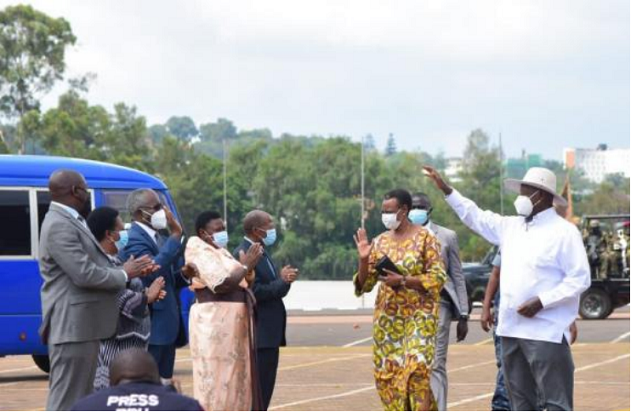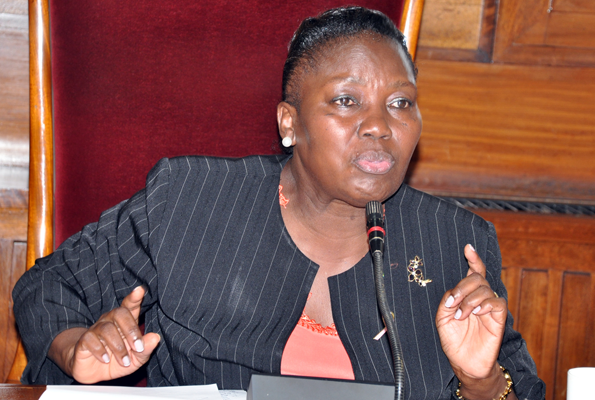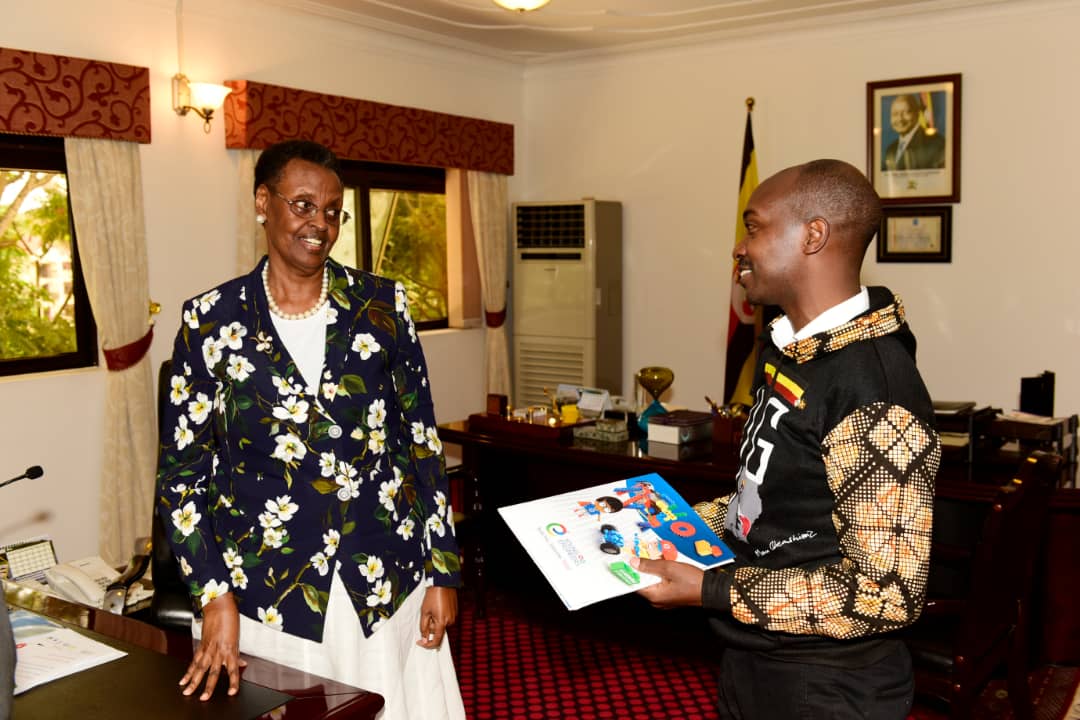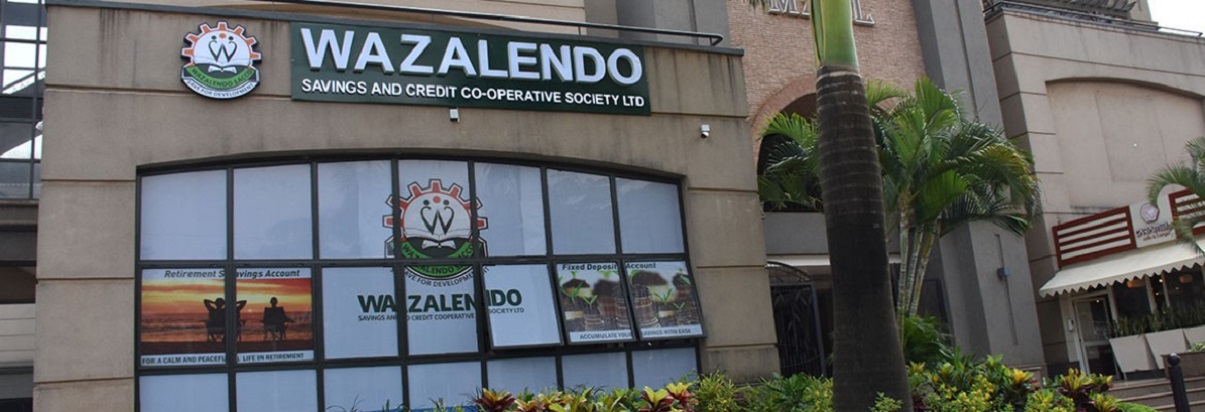President Museveni arriving at Kololo
President Yoweri Kaguta Museveni has yet again poured cold water on primary and Arts teachers’ renewed demand for salary enhancement to match their science counterparts.
In July this year, the government increased the remuneration of science instructors by 300 per cent. As a result, Grade V and Graduate science teachers now earn three million and four million Shillings, respectively, up from 796,000 and 1.1 million Shillings. But the change was not well received by those whose salaries were not increased.
The discomfort paved way for back-and-forth engagements between the government and the Uganda National Teachers Union-UNATU about the unfair distribution of the wage bill. The union first intended to organise its members to strike. However, this issue was ultimately addressed when the government maintained its stance, claiming that the available wage bill only applied to science teachers.
Yesterday, Uganda National Teacher Union-UNATU Secretary General Filbert Bates Baguma reiterated the call asking the government to increase the salaries of primary and art teachers.
Speaking at belated World Teachers’ Day celebrations held at Kololo Airstrip on Wednesday, Baguma said that while science teachers should receive special consideration, all teachers matter, and that it was about time the government enhanced the salaries of teachers in other categories.
But Baguma’s move to bring the issue again was interpreted as a threat to the government by Museveni who later described it as illogical and uncalled for. Museveni who noted that he clearly understands the importance of teachers added that his government does not make money by witchcraft; and that there is no money for their enhancements.
Museveni said he had other important meetings to attend but had chosen to participate in the teachers’ day celebration only to learn that Baguma (UNATU) was blighting his day by lecturing him on topics he has already broached over the years.
The president reiterated that the government cannot pay all teachers at once and therefore decided to concentrate a few available resources on science teachers and then scatter them. He added that his government believes that an impact is made when one group is fully taken care of and later when there are more resources available, another group is also covered.
He further said that this has been the path for his government since 2006 when they decided to prioritize infrastructure development and electricity over other sectors. He pointed out that this choice resulted in a significant portion of the money being directed to the chosen areas—not because other sectors are not vital, but rather because they had to start with those that might provide a stronger foundation from which they could get funds to assist others.
But as the president made his statement supporting the prioritization of science teachers, in the tent, there was a clash of colours as teachers under the Uganda Professional Science Teacher Union-UPSTU, wearing their newly chosen pastel pink, continuously applauded him. From the ‘orange corner’ (UNATU colours) many were seen incredulously muttering while others were looking at the president in disbelief.
At the event, there were several associations and minor unions, especially for private teachers, but UPSTU and UNATU stood out. There were obvious signs that the two factions viewed each other as enemies from the start of the event. Even though the organisers had not reserved any seats for any category of teachers; as time passed, groups ring-fenced specific corners for themselves.
It also turned out that neither group wanted members of the other groups to mix with them. One person who unintentionally donned a shirt similar to the science teacher’s was ejected from a seat next to a UNATU member; “this is not a rich gang, boss,” one of the UNATU-affiliated teachers said.
Many education and policy analysts have advised that if not addressed, the situation will have a significant impact on the teaching and learning process. Baguma brought up the issue as well, saying that the ministry should do research in various schools to determine the facts and the consequences of the selective salary enhancement.
Baguma also pointed out that there is confusion in many districts on who a science teacher is and who isn’t. For instance, he said that while some districts view Physical Education as a science subject, many districts treat it as an art. He also wondered why this enhancement has not benefited pensioners.
Baguma also pointed out that there is also confusion in many districts on who is a science teacher and who is not. For instance, he said that while some districts view PE as a science subject, many districts treat it as art. He also wondered why this enhancement has not benefited pensioners.
During his speech, Rev Prof Dr Samuel Abimelech Luboga also brought up a related issue when he mentioned that there are even some teachers teaching both science and art subjects. Without a clear guideline from the ministry of public service, many human resource offices are finding it hard to classify some teachers.
Commenting on salary issues, the education minister Janet Kataha Museveni, restored hope in art teachers, noting they should be a little bit more patient as the government has a plan of enhancing their salaries progressively.
Ms Museveni also urged teachers, who she described as the catalyst for finding solutions to societal problems, to step up and fill the vacuum being created by parents who seem to have given up their roles in raising their own children.
Meanwhile, President Museveni also used the occasion to criticise public and government-aided school heads, claiming that they are to blame for the high dropout rates because they overcharge students. The president noted that his administration had decided to make primary and lower secondary education completely free to improve access to education in the nation but his efforts are being failed by headteachers.
His comments on the subject come at a time when, despite warnings from the education ministry, school fees in several traditional secondary schools are now almost nearing 3 million Shillings per term of three months. The education ministry recently disclosed that it was drafting a statutory instrument that would be used to cap school fees, but the document has not yet been made public.
-URN





